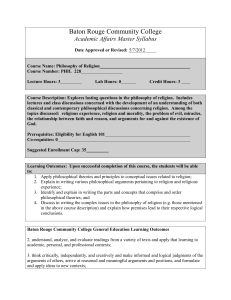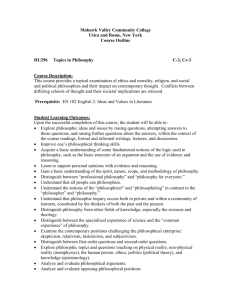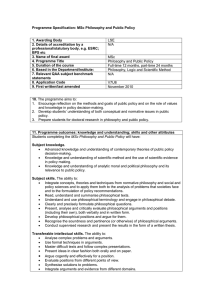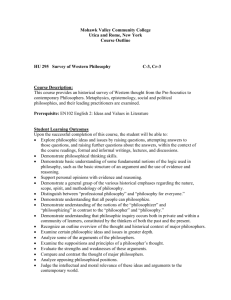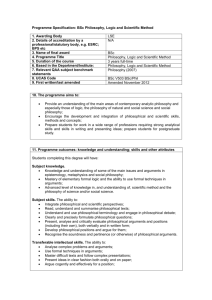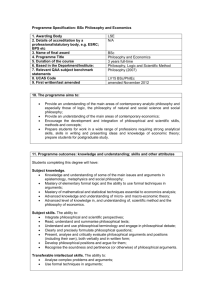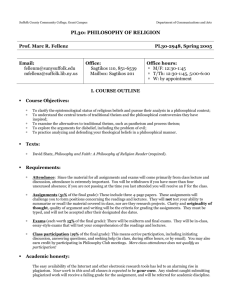course syllabus
advertisement
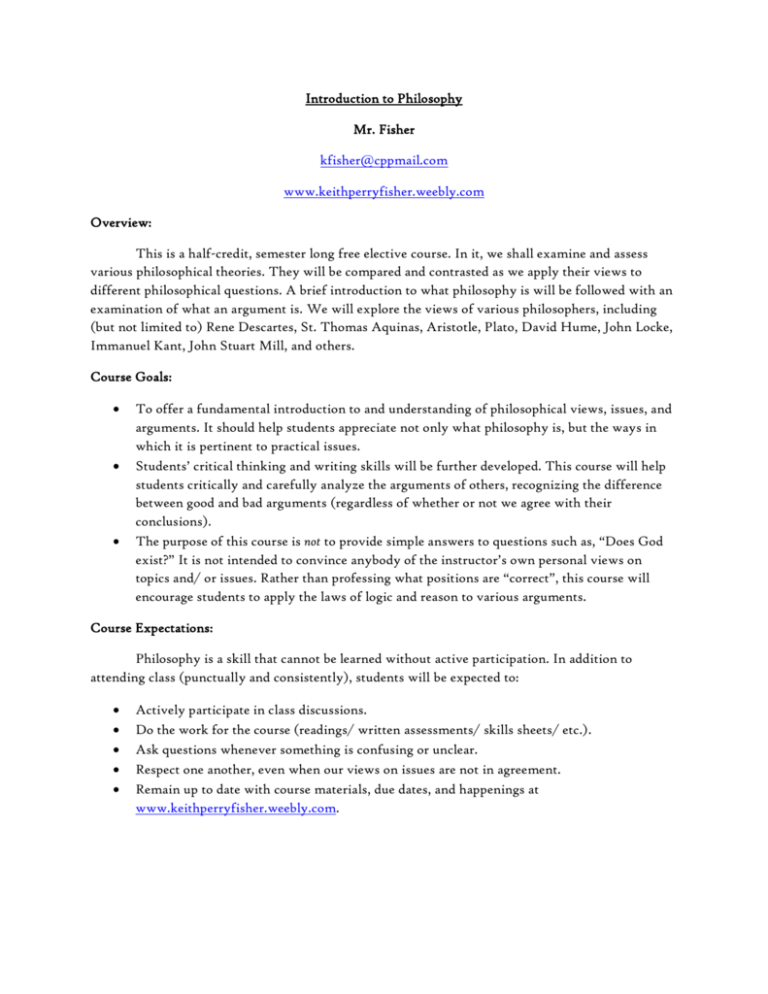
Introduction to Philosophy Mr. Fisher kfisher@cppmail.com www.keithperryfisher.weebly.com Overview: This is a half-credit, semester long free elective course. In it, we shall examine and assess various philosophical theories. They will be compared and contrasted as we apply their views to different philosophical questions. A brief introduction to what philosophy is will be followed with an examination of what an argument is. We will explore the views of various philosophers, including (but not limited to) Rene Descartes, St. Thomas Aquinas, Aristotle, Plato, David Hume, John Locke, Immanuel Kant, John Stuart Mill, and others. Course Goals: To offer a fundamental introduction to and understanding of philosophical views, issues, and arguments. It should help students appreciate not only what philosophy is, but the ways in which it is pertinent to practical issues. Students’ critical thinking and writing skills will be further developed. This course will help students critically and carefully analyze the arguments of others, recognizing the difference between good and bad arguments (regardless of whether or not we agree with their conclusions). The purpose of this course is not to provide simple answers to questions such as, “Does God exist?” It is not intended to convince anybody of the instructor’s own personal views on topics and/ or issues. Rather than pr0fessing what positions are “correct”, this course will encourage students to apply the laws of logic and reason to various arguments. Course Expectations: Philosophy is a skill that cannot be learned without active participation. In addition to attending class (punctually and consistently), students will be expected to: Actively participate in class discussions. Do the work for the course (readings/ written assessments/ skills sheets/ etc.). Ask questions whenever something is confusing or unclear. Respect one another, even when our views on issues are not in agreement. Remain up to date with course materials, due dates, and happenings at www.keithperryfisher.weebly.com. Grading: Your grade for this course will be determined by your performance on each of the following components: Participation and Discussion (15%) Presentations (10%) First Test (10%) Second Test (10%) First Paper (15%) Second Paper (25%) Homework (15%) Class Policies: Assignments may be submitted early. Late work, however, will not be accepted. Electronic devices may not be used during class. Students will treat one another with respect at all times. Sleeping and homework (for this or any class) are not allowed during class time. While this can be a difficult course at times, it is also a very rewarding one. Sharpening your critical thinking skills will benefit you both academically and in life beyond the walls of the classroom. Like anything, you will get out of this course what you put in. In addition to improving your own reasoning and decision making, you can expect to see improvements in your writing abilities, and will engage in fun, purposeful, though provoking discussions.


